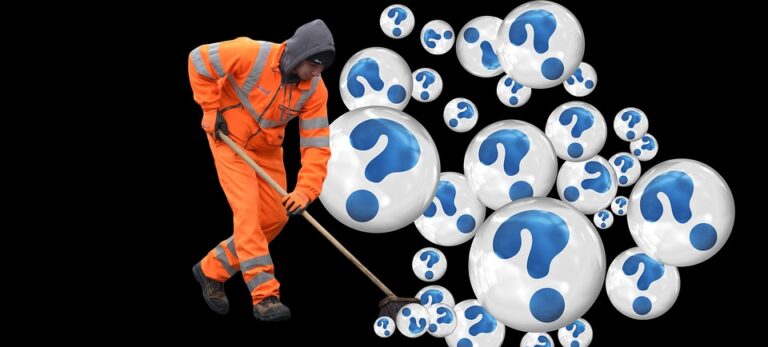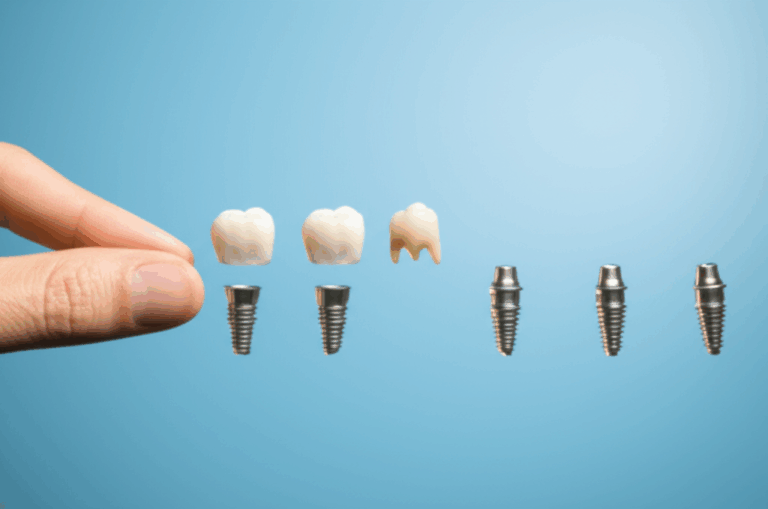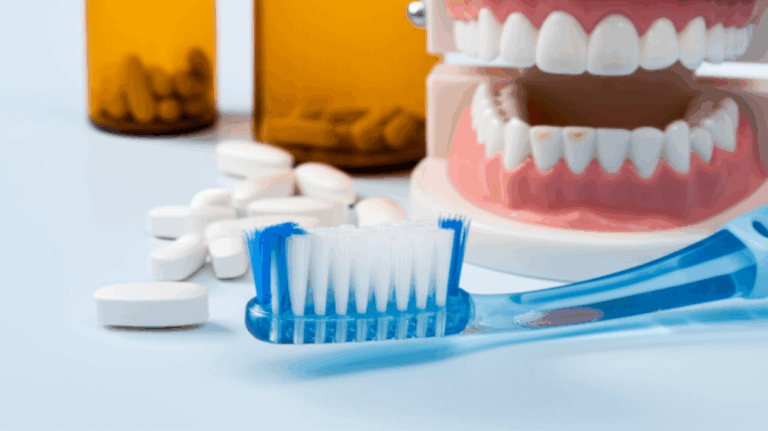
How Salt Helps in Dental Problems: Your Guide to a Natural Oral Remedy
Have you ever had a sore in your mouth, tender gums, or even pulled a tooth and thought, “Is there anything simple and safe I can do at home to feel better—right now?” You reach for the salt shaker and wonder if grandma was onto something with her advice about salt water gargles. The answer is: yes, you’re not alone, and you’re doing the right thing.
Salt water rinses are more than just an old wives’ tale. They’re a proven, gentle, and very effective remedy for many common dental problems—from soothing sore gums to helping a mouth ulcer heal, even helping you heal after surgery. And the best part? The answer to many mouth troubles might already be sitting in your kitchen cupboard.
Let’s break down how this simple mineral can become your first defense for a healthy mouth—and when it’s time to get extra help from your dentist.
In This Article
Here’s what we’ll cover to help you find exactly what you need:
- The Science Behind Salt Water Rinses: How It Works
- Specific Dental Problems Salt Water Can Help With
- How to Make and Use a Salt Water Rinse The Right Way
- Important Things to Know and Its Limits
- Frequently Asked Questions (FAQs) About Salt Water Rinses
- Using the Power of a Simple Remedy for Your Mouth’s Health
A Common Story: Why Do We Reach For Salt Water in a Pinch?
Maybe you bit your cheek at lunch. Or your gums feel swollen and sore for no clear reason. Now you’re brushing gently, brushing more, maybe even moving your tongue around your teeth as if searching for relief. It’s something we all go through.
At some point, everyone wonders if a little bit of salt mixed in warm water might help soothe that ache or help it heal faster. But you might also worry: Is it really effective, or just a myth? Are there any risks? Maybe you even wonder if using salt water is safe for kids or people with certain health conditions.
Let’s look at the facts and science behind this natural method—so you can use it with confidence (and know when it’s time for something more).
The Science Behind Salt Water Rinses: How It Works
Think of a salt water rinse as your mouth’s gentle helper. Here’s why it works so well:
Natural Antiseptic Properties: Keeping Germs Away
Salt (or sodium chloride, its scientific name) makes it hard for germs to grow. When you swish salt water around, it helps wash away food bits, lower plaque, and, most importantly, makes the environment harder for bad germs to live in. Picture it as a backyard sprinkler washing away not just dirt, but also unwanted bugs on the grass.
This doesn’t mean salt water is as strong as medicated mouthwashes. Instead, it offers a natural way to lower the number of bad germs in your mouth—especially helpful between regular brushing and flossing.
Easing Soreness and Swelling: Soothing Irritated Tissues
When you have swollen gums or a mouth sore, the body’s immune system floods that area with fluid. Salt is hypertonic—meaning it pulls extra water out of swollen tissues (thanks, osmosis!). If you think about a swollen sponge that you squeeze, salt water helps “squeeze out” that swelling, soothing what hurts and helping it go down.
Helping Wounds Heal: Creating The Right Environment
The tissues in your mouth heal very quickly—faster than skin on your arm, for example. A salt water rinse helps create the perfect place for healing: a clean, moist place where germs can’t take over and your body’s natural healing can work without being bothered. That’s why it’s commonly used after tooth extractions, oral surgeries, or for those annoying canker sores.
Keeping Your Mouth’s Balance: A Friend to Your Enamel
Is your mouth too acidic? That’s a setup for wearing away of your tooth’s outer layer and cavities. Salt water helps balance out acids, gently bringing things back to normal. It’s like resetting your mouth’s “natural balance,” protecting teeth and gums along the way.
Specific Dental Problems Salt Water Can Help With
Let’s run through the most common times where a salt water rinse is most helpful:
Gum Disease (Gingivitis & Early Periodontitis)
Gingivitis—think red, sore, bleeding gums—often begins when plaque builds up along the gum line. Salt water can’t replace professional deep cleanings, but it helps reduce swelling, ease discomfort, and slow germ growth between dentist visits. If you spot blood on your toothbrush, this quick home remedy gives you some relief while you work on better habits.
Mouth Sores & Ulcers (Canker Sores)
Canker sores can sting, burn, and make eating very unpleasant. Frequent rinses with salt water clean the sore, reduce swelling, and promote faster healing. It’s like a daily “soother” for your sore spots, helping them fade faster and with less pain.
After Dental Work (Extractions, Surgery)
Dentists routinely recommend salt water rinses for a reason. After you’ve had a tooth pulled or gum surgery, the goal is to prevent infection and keep the area clean without bothering stitches or the healing socket. Gentle swishing helps remove tiny bits of food and germs, all while helping you heal in the best way—and can even lower your risk for dry socket.
Toothaches & General Mouth Discomfort
Did you know salt water can bring temporary relief for sore teeth or minor gum injuries? It reduces swelling and washes away food stuck between teeth. While it’s not a cure for bigger problems (like an abscess or deep decay), a warm rinse helps ease the pain for a little while—and helps you feel a bit better until you can see a professional.
Sore Throats & Oral Infections
Even outside of regular dental problems, a salt water gargle can lessen the pain of a sore throat or viral mouth infection. It won’t “kill” the virus or bacteria causing it, but it offers much-needed comfort and keeps the mouth clean while your body heals.
Bad Breath (Halitosis)
Got garlic breath? Or just feeling not-so-fresh? Salt water rinses can quickly reduce odor by washing away debris and germs, especially those that hang out on your tongue or between your teeth. While it’s not a replacement for brushing and flossing, it’s a great way to freshen up during the day.
For more on maintaining daily freshness, check out this helpful guide to teeth health.
How to Make and Use a Salt Water Rinse The Right Way
The best salt water mouthwash recipe is simple—two ingredients, a cup, and a bit of common sense. Here’s your step-by-step guide:
The Right Ingredients: Plain, Reliable, and Safe
- Water: Start with one cup of warm (not hot!) water. Tap is fine, and warming it helps dissolve the salt and soothe sore tissues.
- Salt: Common table salt works perfectly, but sea salt or Himalayan salt can be used too. You don’t need a fancy brand.
The Right Mix: How Much Salt Is Enough?
Aim for ½ teaspoon of salt in 1 cup (8 ounces) of warm water. This makes a safe saline solution—about as salty as your body’s natural fluids. Too little salt, and you miss the benefits. Too much, and you risk irritating your gums or drying out tissues.
Mixing and Rinsing Technique: Keep It Gentle
When—and How Often—to Use Salt Water Rinses
- Routine use: Once or twice daily if you’re fighting minor irritation or as part of your regular oral hygiene.
- After meals: Handy for cleaning out debris, especially after mealtime or snacks that might get stuck.
- Post-dental procedures: Your dentist may recommend rinsing two to three times per day, starting 24 hours after surgery.
Remember: Don’t overdo it! Excessive salt rinsing (more than four times a day for weeks) can actually dry out your mouth and irritate gums.
Important Things to Know and Its Limits
While salt water is wonderfully safe and effective for many routine dental issues, it’s not a cure-all. Here’s what to keep in mind:
Not a Cure-All: When to See a Professional
If you’ve got pain that won’t go away, big infections with pus, bleeding that won’t stop, or swelling that gets worse, it’s time to visit the dentist. Salt water rinses give you comfort—they don’t fix cavities, advanced gum disease, or deep infections.
If you want to learn more about the full range of dental diseases and their care, you’ll find it helpful to expand your knowledge with reputable guides.
Possible Downsides: You Can Do It Too Much
Used as recommended, salt rinses are safe. Salt is, after all, something we eat every day. But problems can happen if the solution is too salty (more than ½ to 1 teaspoon per cup), or if you rinse too often day after day. Overuse can leave your mouth feeling dry, and irritate your gums. Using it in moderation is key.
An Extra Helper, Not a Replacement
Salt water is a fantastic sidekick, but not the main part of your mouth care routine. You still need to brush with fluoride toothpaste twice a day, floss daily, and see your dentist for regular checkups. Think of salt rinses as your go-to home remedy—not your only action.
Who Should Be Cautious?
People with special health concerns, like those with high blood pressure (hypertension) or kidney disease, should talk to their doctor before using salt rinses daily. While it’s not swallowing the salt that’s the issue, sometimes a little gets swallowed, and it all adds up.
For the youngest kids, especially if they can’t spit it out properly, skip the salt rinse or use only with close supervision.
Frequently Asked Questions (FAQs) About Salt Water Rinses
Is salt water safe to use daily?
Absolutely, for most people! Using a mild salt rinse once or twice a day is safe and fine for most people—especially for short-term dental emergencies or healing. Just use the right amount of salt and don’t overdo it long-term.
Can salt water damage teeth or enamel?
No evidence suggests that weak salt water rinses (½ teaspoon per 8 ounces of water) harm the hard outer or sensitive inner layers of your teeth. Stronger solutions or excessive use could dry the mouth out or irritate gums, but won’t physically wear down your teeth.
What kind of salt should I use?
Simple table salt works best—it’s easy, inexpensive, and well-studied. “Natural” sea salt or Himalayan salt is fine, but doesn’t offer any extra health benefits.
How long does it take for salt water to work?
You may feel some relief right away, especially if you have gum swelling or a mouth sore. For healing (like after an extraction or canker sore), repeat rinses over several days give you the best results.
Can children use salt water rinses?
Yes—for older children who can swish and spit without swallowing. Young kids may accidentally swallow the rinse, so supervise them closely or avoid using salt water as a mouthwash until they’re ready.
Real World Examples: Case Studies and Data at a Glance
Still thinking, “Does this really work?” Here’s a quick rundown of how salt water helps for real dental issues—backed by research and the everyday advice of professionals worldwide.
| Dental Problem / Condition | How Salt Water Helps | Proven Tips & Advice |
|---|---|---|
| Gingivitis (Mild Gum Inflammation) | Reduces swelling and germs, soothes gums | Studies show reduced bleeding and inflammation when used as a helper with brushing and flossing. |
| Mouth Ulcers (Canker Sores) | Cleans sore, speeds healing, calms pain | Rinsing 3-4 times per day after meals helps most small mouth ulcers fade in days rather than a week or more. |
| Post-Tooth Extraction / Surgery | Keeps socket clean, prevents infection, helps healing | Dentists strongly recommend starting 24 hours after surgery, using gentle swishes several times a day. |
| Minor Toothache & Mouth Discomfort | Temporarily relieves swelling, removes irritants | Useful in the short-term before a dentist visit for deep pain or infection. |
| Bad Breath (Halitosis) | Washes away debris and odor-causing germs | Quick, natural “reset” for fresh breath—best when combined with tongue cleaning and brushing. |
Solutions You Can Try at Home (And When to See a Dentist)
Let’s go over what you can do confidently at home, and when it’s time for the professionals.
What You Can Do at Home
- Use a salt water rinse after meals or snacks, when your gums feel sensitive, or after minor oral injuries.
- Brush and floss daily to minimize plaque—the main cause of most dental problems.
- Stay hydrated and eat a balanced diet to keep your mouth’s defenses strong.
- Avoid harsh mouthwashes with strong alcohol content if you have mouth sores or recent surgery.
Want more tips for daily hygiene or how to keep your smile bright? This resource on dental care and aesthetics is packed with practical advice.
When to See a Dentist
- Tooth pain wakes you up at night or lasts more than 2 days.
- You see large swelling, pus, or struggle to open your mouth.
- Bleeding from the gums doesn’t stop, even after a day or two of extra care.
- Recent dental work feels worse, not better, within 2-3 days.
Salt water can help manage symptoms, but for these situations, only a professional can provide a complete (and permanent) fix. Sometimes you’ll need a filling, antibiotics, a deep cleaning, or even minor surgery. Salt water is your helpful assistant—not your only tool.
And here’s an interesting fact about today’s world—dentistry today is deeply connected to digital technology. If you ever wondered how dental devices or false teeth are made, you can discover the latest advances in the field in places like this digital dental lab.
Who Is Salt Water Rinse For? (And Who Should Be Cautious?)
While almost anyone dealing with minor mouth discomfort can benefit from a salt water rinse, here are the people who will benefit the most:
- People with mild gum irritation (from missed flossing or after a popcorn hull incident).
- Those recovering from oral surgery or a recent extraction.
- Anyone with mouth sores (canker sores or small wounds).
- Individuals looking for a natural, chemical-free freshener between brushing sessions.
But it’s not right for everyone, every time.
Who should be cautious or ask their doctor first?
- People with high blood pressure, serious kidney disease, or heart issues.
- Very young children who cannot rinse and spit safely.
- Those with persistent symptoms that don’t improve in 3-5 days, or rapidly worsening swelling or pain.
Your Healthy Takeaway: Simple Steps for a Happier Mouth
Here’s the big picture: Salt water rinses are a proven home remedy that can help with everyday mouth discomfort, support healing, and help keep your mouth healthier—naturally and safely.
Remember these main things:
- Salt water works by reducing swelling, gently controlling germs, and creating the ideal environment for healing.
- It’s best for mild gum inflammation, mouth sores, after dental procedures, and for temporary relief while you wait to see your dentist.
- Mix ½ teaspoon of table salt in one cup of warm water—swish, don’t swallow, and spit after 30 seconds.
- Don’t overuse. Once or twice daily for a few days is enough for most problems.
- Maintain the health of your whole mouth with regular brushing, flossing, and professional checkups.
- Salt water never replaces a visit to your dentist. For symptoms that are long-lasting, very bad, or strange, always seek professional advice.
If you’re curious about the deeper science behind teeth, gums, and the care they need, or want to take steps to prevent gum disease and improve oral hygiene, visit guides like these for evidence-based, friendly information: teeth information and dental care.
And as dental technology continues to evolve, and options for fixing teeth become more advanced, knowing your basic home care—including the humble salt water rinse—will always have its place in your personal care kit.
What to do next?
The next time sore gums or a small oral wound has you reaching for relief, trust in the simple power of salt water. And when in doubt, lean on your dental professionals to keep your smile shining bright.
That’s the full story—from why salt water helps, the science behind it, how to use it safely, and when it’s time to call for expert help. Here’s to a happier, healthier mouth—one cup at a time.








